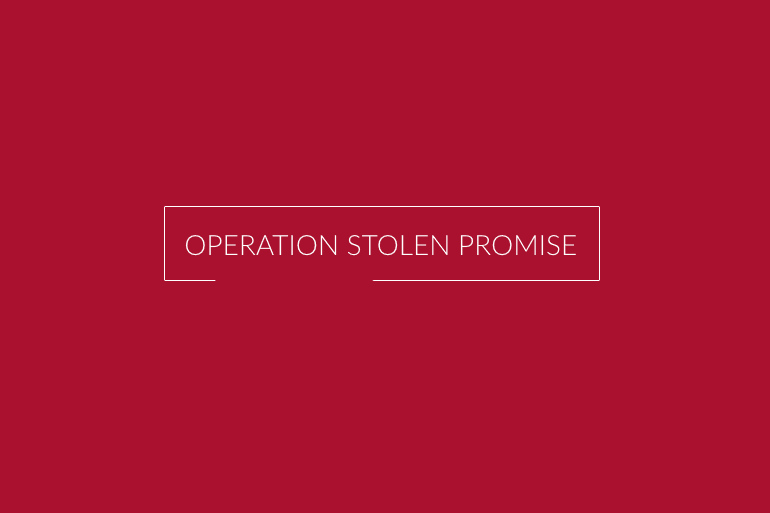A mercury switch, also known as a tilt-switch often used in car bombs, was one of the items allegedly ordered from a US vendor on the dark web by Jomic Calleja.
This emerged from the testimony of Superintendent George Cremona earlier this week, as the case against Calleja continued in court before Magistrate Donatella Frendo Dimech.
Cremona gave the court a detailed timeline of events between June 10 and 29 August 2019, months before Calleja was arrested in March this year on suspicion of illegally importing explosives.
On 10 June 2019, the police were informed by friendly foreign security services that unknown persons were attempting to buy Polonium 210, Ricin and Fentaynl on the dark web.
Intercepted communications from between 1-8 June that year showed that Calleja’s intended target was a man, who was between 165cm and 175cm tall and weighed around 55-60kg. These details were revealed as the buyer, who went by pseudonyms which included ‘unknown 893’ user ‘2F108X’‘2 and Foxtrot108XRAY’ was asked by the seller what dose of polonium 210 he required.
‘Beauty of Polonium’
Using the handle “MONIKER 2F108X” on a dark web site called “Berlusconi”, the suspect had asked where the products would be shipped from and had been told that they would be hidden in small packets of “for example Bluetooth speakers”, to avoid being picked up by radiation scanners.
It was later agreed that the seller and buyer were to continue their discussions on a PGP (pretty good privacy) encrypted chat, using the codeword ALPHA to confirm the buyer’s identity.
Polonium 210 is a radioactive substance which is harmless outside the body but lethal if ingested, causing excruciating death by radiation sickness. The same substance was used to kill Russian defector and former FSB agent Alexander Litvinienko in 2006.
“The seller also said that nobody would suspect Polonium 210 because it only emits alpha radiation,” said Cremona, adding that the seller had told the buyer that it would cause death by pneumonia within two weeks.
The two corresponded for some weeks, with the buyer being reassured that the substance was odourless and could not be tasted. The seller asked for the height and weight of the intended victims and was told that these were required to calculate a fatal dose.
In another exchange of messages between 10 and 24 June 2019, the buyer said he needed five doses “for now, but would definitely need more”. The seller replied that five people dropping dead with alpha radiation poisoning would cause suspicion and that it would be better if just one dose was sent to start off with. Every dose would cost $500, but a lower price could be arranged for repeat business, said the seller, asking for a week to prepare the Polonium 210 in his laboratory.
There were several chat messages regarding secure email providers before the buyer provided his secure email address – [email protected]. The seller sent a code word: “Marie Curie” – fittingly the Polish pioneer of radioactivity research – to be used to identify communications between the two.
The buyer had initially used the wrong codeword “ALPHA” by mistake and had apologised for this, Cremona told the court.
The seller then requested recipient details for Malta to calculate postage, also telling the buyer to put the poison in the food or drink of the victim, who would die after two weeks. “That’s the beauty of Polonium 210,” he said.
Shipped through UK remailer
Calleja had insisted that it was important that the substance be shipped from within the EU, asking whether it was a good idea to send it via a UK remailer. It was not, replied the seller, who said that the simpler things were kept, the better.
Through Protonmail, Calleja mentioned a friend of his in the UK who could be “a good client in future”, also asking whether the seller had any “Ricin powder.” The seller remarked that he was trying to buy many things at once and said that he didn’t have any Ricin.
Calleja specified a UK forwarding address in Essex addressed to a ROGER TABONE, care of EUF Group Ltd in Essex. Eventually a payment of.044458 Bitcoins (€358.28) plus shipping costs at 0.002046 BTC (€16.49) was sent.
A new seller wrote to Calleja’s Protonmail account, telling him that he had noted the buyer as having a good reputation, saying that he needed to make a customs listing to avoid law enforcement (referred to as “LE” by the sender) giving them a hard time.
Shipment was from the US, he said. Payment was to remain in escrow until the package was delivered.
The seller also said he had Glock handguns, suppressors and C4 explosives for sale. He was selling blocks of C4 at $750 each plus shipping, but buying two blocks qualified for the possibility of paying $1500 “to be sure it would explode.” Shipping would cost $100, he said.
The vendor, in another email, gave detailed instructions on how to safely insert the detonator and mercury switch into the C4. After being told that the target was a car, the buyer was told that the best way to attach it to the target vehicle was by using a large magnet.
Police intercepts the package
After the package was intercepted in Malta, having somehow slipped past security screening in the UK, the buyer and seller exchanged angry correspondence, with Calleja accusing the seller of being a police officer (“you are one of the pigs”) and the seller accusing him of trying to get out of paying. Had the items been intercepted in the UK, this would have been “all over the news,” he wrote.
Calleja had replied that he didn’t expect the seller to believe him, but that he “had people everywhere” and was trying to get the package out of the authorities’ hands.
Together with some colleagues, Superintendent Cremona had flown out to an Arizona airforce base to see the explosives for themselves. They were shown the C4, a 9-volt battery, a toggle switch, a mercury switch and a blasting cap. The C4 was then removed by explosives experts, who later certified it as a viable explosive. He presented the court with 34 photographs, documenting the entire process.
The Bluetooth speaker was carefully reassembled, without the explosive, and with a tracking device placed inside and sent on its way.
The IP addresses of persons who logged into the Fedex parcel tracking service to track the parcel number were later obtained by the Maltese authorities.
The package, complete with inert dummy explosive, was sent to Malta for a controlled delivery to be carried out.
The delivery to “Roger Tabone”, who turned out to be Jomic Calleja Maatouk was supposed to be performed by Express Trailers, but was refused by the recipient. This caused the police to suspect that there was someone working on the inside who knew about the police operation.
Express Trailers supervisor Matthew Borg was later arrested and admitted under questioning that he would pass on information to Jomic Calleja. The company has disassociated itself from its ex-employee’s actions and has said it collaborated with the police, terminating Borg’s employment.
Calleja was arrested outside the Birkirkara McDonalds outlet as he was about to get inside their car. Suspected drugs were found and a number of electronic devices were seized by the police. These were taken to the US by a court expert for unlocking and analysis.
It was on 29 August 2019, after being released on police bail, that Jomic Calleja had written to the seller complaining that the order was “found by the pigs”.
Police are understood to still be analysing an “enormous” amount of data found on the accused’s electronic devices and computers. The case continues.




